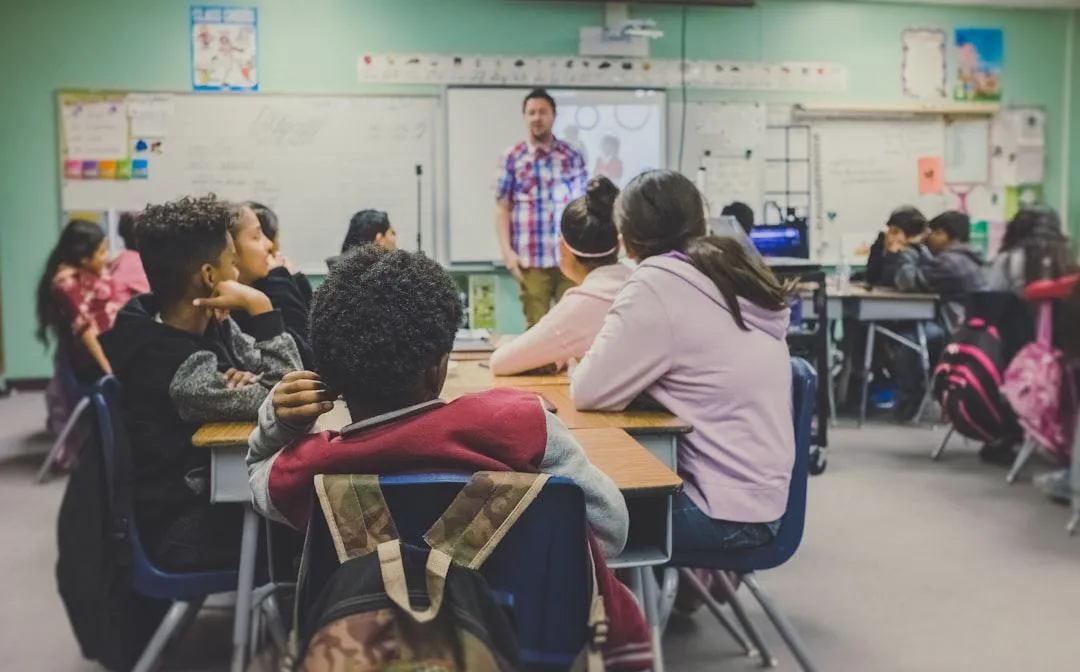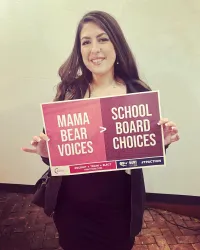
"Educate and inform the whole mass of the people. They are the only sure reliance for the preservation of our liberty."

10 Hidden Ways Your Child's School May Be Undermining Your Values — And What You Can Do About It
Introduction
If something feels off about what your child is being taught, but you can't quite put your finger on it, you're not alone. A recent Gallup poll revealed that parental satisfaction with K-12 education has dropped to historic lows, with 68% of parents expressing concerns about their children's schooling experience. Many families sense a disconnect between their home values and classroom teachings, yet struggle to identify specific issues or know how to address them effectively.
The truth is, modern education rarely operates in a values vacuum. Whether intentional or not, schools communicate worldviews, priorities, and beliefs that may conflict with your family's foundation. Understanding these potential areas of tension, and knowing your rights as a parent, empowers you to advocate effectively for your child's education.
1. Values-Neutral Education Isn't Neutral
Despite claims of neutrality, every educational approach carries underlying assumptions about truth, morality, and human nature. When schools present themselves as "values-neutral," they're often promoting secular humanism or progressive ideologies while positioning traditional or religious viewpoints as outdated or harmful.
This false neutrality appears in subtle ways: literature selections that consistently portray traditional families negatively, science classes that present only materialistic explanations for existence, or social studies that frame historical religious figures as oppressive rather than transformative.
What parents can do: Request detailed curriculum information beyond basic course descriptions. Ask specific questions about underlying philosophies in your child's textbooks and supplementary materials. Attend school board meetings where curriculum adoption occurs, and don't hesitate to propose alternative resources that represent your family's perspective.
2. Social-Emotional Learning (SEL): The Trojan Horse
Social-Emotional Learning sounds beneficial, who doesn't want children to develop emotional intelligence and social skills? However, many SEL programs carry ideological content that extends far beyond basic emotional regulation and empathy training.
These programs often include controversial elements like identity politics, social justice activism, and progressive views on family structures. Children may be taught to question their parents' beliefs or view traditional values as sources of oppression or bias.
What to ask at your school: Is emotional and behavioral data being collected and stored? What specific SEL framework does the school use, and can you review all materials? How are parents informed when their children participate in SEL activities that might conflict with family values? Request opt-out options for components that concern you.
3. Rewriting History with a Modern Agenda
History education increasingly presents America's founding through exclusively critical lenses, emphasizing oppression while minimizing the revolutionary ideals of freedom, individual rights, and democratic governance. Religious contributions to American development are often minimized or portrayed negatively, while secular and progressive movements receive disproportionate emphasis.
This selective presentation creates a distorted understanding of our nation's heritage and the role of faith in shaping American institutions and values.
Tips for spotting this: Review your child's history textbook for balanced coverage of religious figures and movements. Notice whether founding documents are presented as aspirational ideals or dismissed as hypocritical. Ask teachers about supplementary materials and request alternative reading lists that include diverse historical perspectives, including conservative and faith-based viewpoints.
4. Censorship of Faith or Family-Oriented Speech
Many students report being told they cannot mention God, discuss religious holidays, or refer to traditional family structures in school assignments or conversations. This censorship violates students' First Amendment rights while creating an atmosphere where faith-based perspectives are treated as inappropriate or offensive.
Children from traditional families may feel silenced when asked to avoid terms like "mom and dad" or discouraged from sharing their religious beliefs during discussions or presentations.
Action step: Educate your child about their constitutional rights to free speech and religious expression in public schools. Provide them with age-appropriate language to respectfully assert these rights. If violations occur, document incidents and contact school administrators with clear citations of relevant legal protections.
5. Gender & Identity Ideologies Introduced Too Young
Schools increasingly introduce complex concepts about gender identity and sexuality to elementary-age children without parental notification or consent. These lessons often present controversial theories as settled science while bypassing parents' role in guiding their children through sensitive developmental issues.
Young children may be encouraged to question their biological sex or explore identity categories that conflict with their families' understanding of human nature and development.
What your rights are as a parent: Many states have parental notification laws requiring schools to inform parents before discussing these topics. Research your state's specific protections and file appropriate opt-out letters. Understand legal precedents that support parental authority in these areas, and don't hesitate to seek legal counsel if your rights are violated.
6. Biased Teacher Training That Filters Down
Professional development for educators increasingly includes mandatory training in diversity, equity, and inclusion (DEI) concepts that carry specific political and ideological assumptions. These training programs influence classroom tone, material selection, and disciplinary approaches in ways that may conflict with your family's values.
Teachers trained in these frameworks may inadvertently or intentionally promote progressive viewpoints while treating traditional perspectives as problematic or harmful.
What to look for: Review school board budgets for professional development expenditures and training providers. Ask for transparency about mandatory teacher training content. Monitor teacher newsletters and communications for language that suggests ideological bias. Advocate for balanced professional development that includes diverse educational philosophies.
7. Indoctrination by YouTube & Digital Content in Class
Teachers frequently use online videos and digital content with minimal oversight or review. YouTube videos, educational websites, and streaming content often contain embedded messages that promote specific worldviews while appearing to focus on academic subjects.
This unfiltered digital content can expose children to inappropriate material or biased perspectives without parents' knowledge or consent.
How to request oversight: Ask your school for their media usage policy and request regular logs of digital content used in your child's classroom. Propose that schools preview and approve all video content before classroom use. Advocate for policies requiring parental notification when controversial digital materials are used.
8. Silence on Critical Thinking and Logic
Modern education often emphasizes emotional responses and personal experiences over logical reasoning and critical analysis. Students learn to prioritize feelings over facts and avoid challenging popular narratives through rigorous thinking.
This approach leaves children vulnerable to manipulation and unable to evaluate ideas independently. They may accept claims based on emotional appeal rather than evidence and reasoning.
How classical education restores balance: Classical educational approaches emphasize logic, dialectic reasoning, and rhetoric as essential tools for clear thinking. Consider supplementing your child's education with logic courses, debate opportunities, or homeschool resources that prioritize critical thinking skills.
9. Lack of Transparency with Parents
Some schools maintain policies that actively exclude parents from important information about their children's school experience. This may include social transitions, counseling sessions, or behavioral interventions that occur without parental knowledge or consent.
These practices undermine parental authority and prevent families from providing consistent support and guidance for their children.
What laws exist: Research your state's parental rights legislation and transparency requirements. Many states have enacted laws requiring schools to notify parents about significant changes in their child's school experience. Understand your rights and don't hesitate to assert them when schools fail to communicate appropriately.
10. Normalizing Mental Health Interventions Without Parents
Schools increasingly provide counseling and mental health services without requiring parental consent or notification. While some interventions may be appropriate in crisis situations, routine counseling that occurs without parental involvement can undermine family relationships and authority.
Children may receive guidance that conflicts with their family's values or approaches to emotional and spiritual wellness.
How to protect your rights: File appropriate paperwork with your child's school establishing your expectations for parental notification and consent regarding counseling services. Add your contact information and preferences to your child's official file. Understand the difference between crisis interventions and routine counseling, and advocate for your involvement in non-emergency situations.
Take Action Today
Protecting your child's education requires active engagement and informed advocacy. Don't wait until problems arise, establish your expectations and rights proactively.
Want to Learn More About Education?
Your voice matters in your child's education. Use it wisely and consistently to ensure their schooling supports rather than undermines the values you're working to instill at home.


Facebook
Instagram
X
Youtube
TikTok